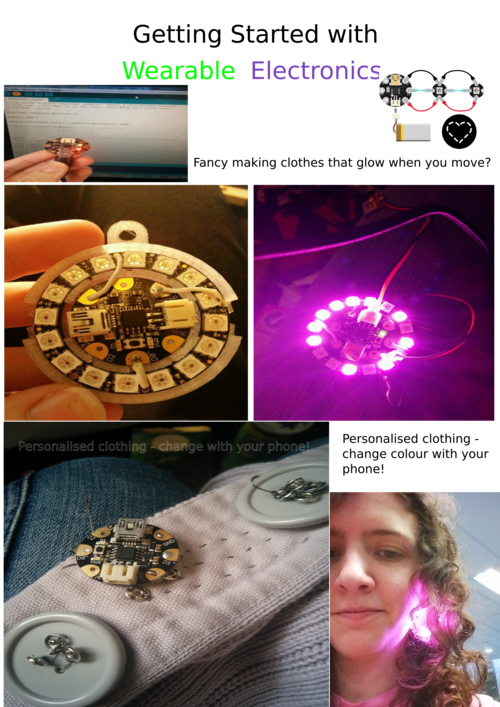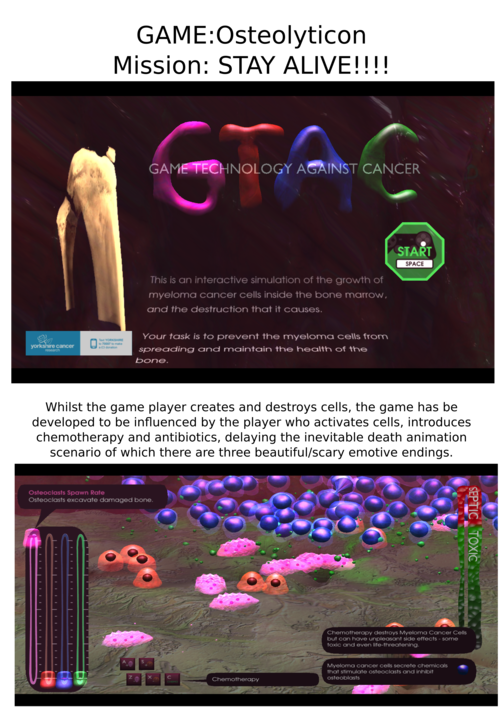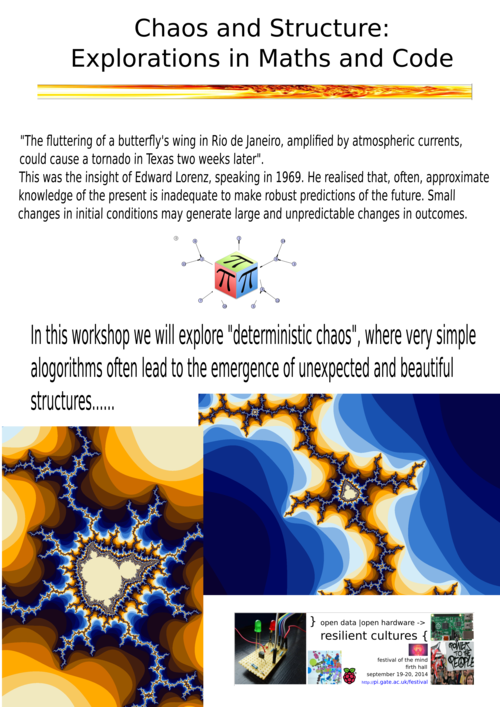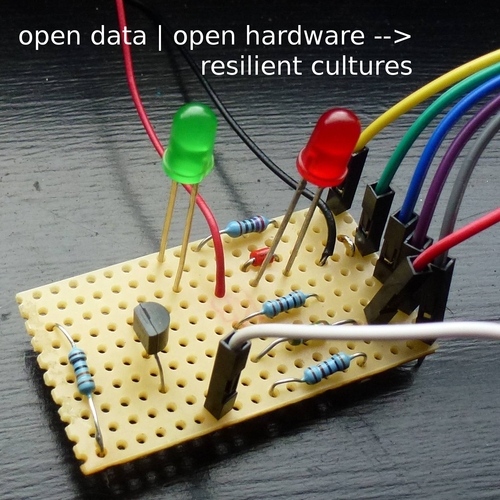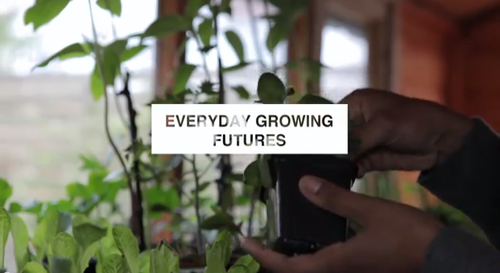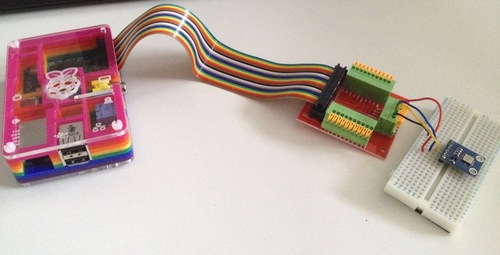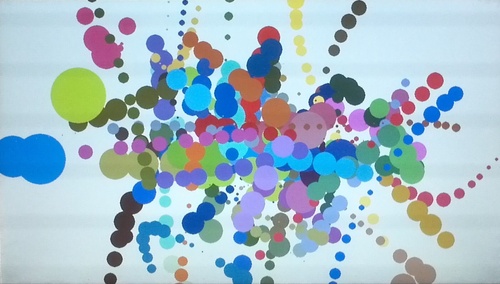Festival of the Mind 2014
Resilience is ability to bounce back from stresses, strains and shocks. Resilient Cultures is a two-day event at the Festival of the Mind 2014 about how open source software, open data and open hardware can help build social resilience.
Programme
- Friday 19th September 9.30 — 2.30: schools only (Firth Hall)
- Friday 19th 8pm — midnight: Resilient Cultures gig at Audacious Art Space
- Saturday 20th September 10 — 4: open to all (Firth Hall)
The Exhibits:
- Build a Raspberry Pi Weather Station (Jo Bates, Information Studies): have a go at building your own Raspberry Pi weather station and sharing the data that you generate directly with the Met Office's Weather Observations Website.
- Open Wearable Electronics (Charlotte Godley): Learn how to put together a simple, customisable flashing circuit using boards you can put into your clothing! See how this can then be customised to your own colours and style and inspiration of what projects this could be put into.
- Bio-Microscopy (Ashley Cadby, Physics): gain a whole new perspective on microbes and their habits with this exhibit of high-power microscopes operating at variable focal lengths to expose the secret life of bacteria.
- Chaos and Structure, Maths and Code (Sam Dolan, Maths) will explore deterministic chaos where simple algorithms often lead to unexpected and beautiful structures like fractals.
- Sheffield's Raspberry Pi Factory (Gee Bartlett from Pimoroni) will showcase simple robotics and games from Sheffield's own Pi company.
- Everyday Growing Cultures (Farida Vis, Information Studies) explores the potential of digital engagement and open data for allotment holders and those interested in cultivating currently unused plots of council-owned land, in order to build stronger, more active communities, benefit local economies and improve environmental sustainability and food security.
- The PiBrush (Fred Sonnenwald, Hamish Cunningham) is an interactive art and technology exhibit that simulates flicking paint off the end of a paintbrush onto canvas — as Jackson Pollock famously did in the 1940s and 50s. It uses two Raspberry Pis and an accelerometer.
- RoboPlant (Colin Osborne, Plant Biology / Alastair Buckley, Physics) is a human-sized robot mimicking the replicable stages of photosynthesis in plants. Photovoltaic panels absorb light and convert it into electricity. This powers an electrolyser which splits water into hydrogen and oxygen.
- Game Technology Against Cancer (Cassie Limb). Come and play with the cells that keep you standing, explore their environment in an inflatable bone sculpture, connect with the smallest cells that support your every step and play the latest in cancer busting open source games!
- Laser-Cut Geodesics (James Wallbank, Access Space) will showcase geodesic dome and hexayurt models built from laser-cut panels for resilient modular architecture.
- 3D Scanning (John Moseley, Access Space): 3D printers herald new possibilities in micro-manufacturing — but how do we create the designs that they print? This exhibit will showcase 3D scanning, taking 3D objects and turning them into computational models.
- Open Source Music (Mark Hadman): hand-coded digital and hand-soldered analogue sound machines used for live ambient/drone performance by Mark Hadman (aka Spandril).
- Numbers to Grooves (Dominic Moore). Turn yourself into an 8 bit analogue computer via the miracles of tapping, bashing and bumping. Dominic's workshop will build live rhythm machines from its participants. Digital music technology works on encodings — as does musical notation — but here the encoding is you and the computer is the group. This is how music originated — and it was all 100% open source up until a few hundred years ago! Music is almost certainly older than language itself — so we're all music experts! Specialist musicians and musicologists have a specialised nomenclature and notation for representing tunes and rhythms, but Dominic will remind us that the digital is always only an approximation of sound and that we all know how to make music already — and we're the real thing!
- Big Data and Gut Bacteria (Keith Harris, Maths). Big Data is a buzzterm for the collection of data sets so complex that they become extremely difficult to store and analyse using traditional techniques. The belief is that Big Data will allow correlations to be found that will enable us to spot business trends, prevent disease outbreaks, combat crime, etc., but big data may be unrepresentative leading to biased results and the 'discovery' of relationships from chance correlations. Can the graphical visualisation of multidimensional data help?
Want to play? Join us on Saturday 20th September (10.30am to 2pm) at Firth Hall.
Hamish Cunningham, Jo Bates, Bo Meson.
